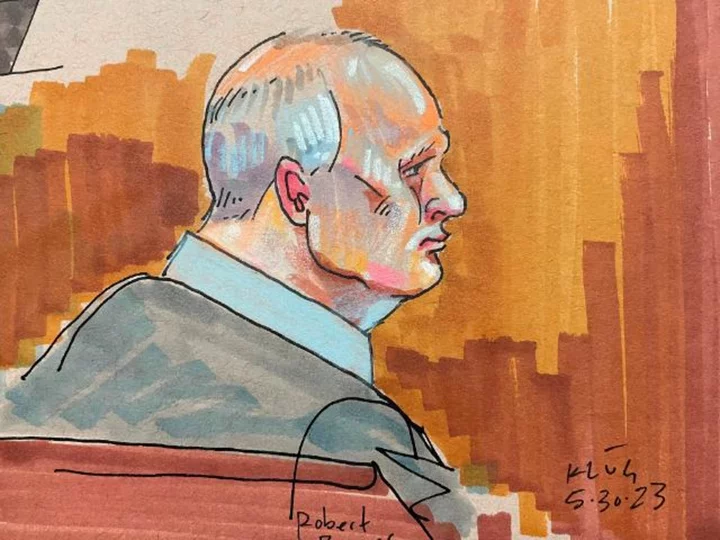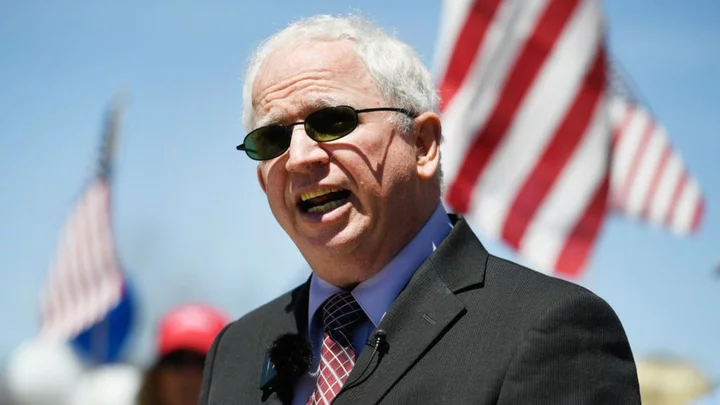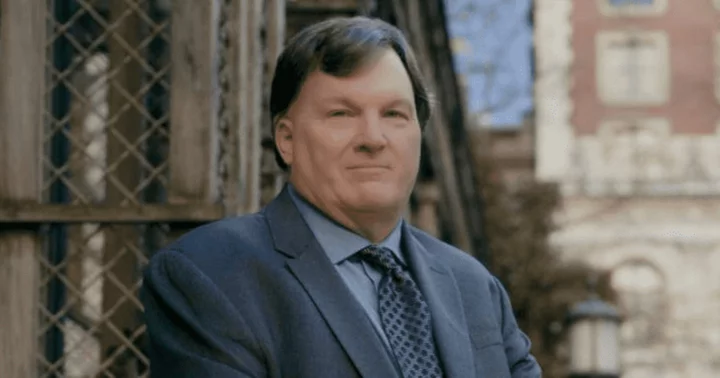The final phase of the Pittsburgh synagogue gunman's death penalty trial began Monday as prosecutors laid out why the shooter should be sentenced to death, including his continued lack of remorse in the attack that left 11 worshippers dead and six others wounded.
"He defiled a house of worship, turning it into a place of violence and death," prosecutor Nicole Vasquez Schmitt said. "He made these decisions, and he is proud of them."
"At the end of this trial, we will ask you to return a verdict of death, a verdict of justice," she added. "The defendant made his decisions, and he must be held accountable."
In contrast, defense attorneys for the gunman, Robert Bowers, emphasized his difficult upbringing and told jurors to follow their own moral code. They said a life sentence was enough of a penalty.
"The death penalty is never required -- not in this case and not in any other case. It is each of you who decides Mr. Bowers' fate," defense attorney Elisa Long said. "You are never required to do violence to your own conscience or to surrender your own opinion. You are never required to fall in line with the views of others."
The opening statements came as part of the third and final phase of this trial as the jury considers whether to sentence him to death.
Bowers, 50, was found guilty on June 16 of all 63 charges against him in the attack at Pittsburgh's Tree of Life synagogue in October 2018, the deadliest ever attack on Jewish people in the United States. Twenty-two of those counts were capital offenses.
The jury further found he was eligible for the death penalty on July 13, moving the trial to this final sentencing stage.
The antisemitic mass killing began on a rainy Saturday morning when Bowers burst into the synagogue and began shooting people using an AR-15-style rifle. The synagogue was hosting three congregations that day, Tree of Life, Dor Hadash and New Light, for weekly Shabbat services.
The victims included a 97-year-old great-grandmother, an 87-year-old accountant and a couple married at the synagogue more than 60 years earlier.
Prior to the attack, the gunman spent years posting hateful comments about immigrants and Jewish people on Gab, a small social media platform used by far-right extremists. He criticized migrants as "invaders" and repeatedly disparaged the Hebrew Immigrant Aid Society, a nonprofit providing support to refugees that had recently held an event with the Dor Hadash congregation.
Bowers further expressed his hatred for immigrants and Jews as he was being arrested and continued to defend his antisemitic beliefs in jailhouse interviews earlier this year, witnesses testified in the trial.
Prosecution, defense offer arguments for and against Robert Bowers' death
Vasquez Schmitt, the prosecutor, started opening statements by telling jurors each of the 11 people killed were so much more than a victim.
"They were loved, they were unique, and they've left behind loved ones who had to endure the crushing weight of their loss," she said. "You are going to learn about how they lived and how they loved and how much they are missed by those who loved them."
The prosecution said they will prove additional aggravating factors, including: victim impact, killings motivated by religious animus, selection of site, lack of remorse and injury to surviving victims.
Vasquez Schmitt asked the jury to give weight to the fact the defendant killed these victims because they belong to a particular faith and didn't know them personally. He killed them because, as Bowers told psychologist Dr. Richard Rogers in an examination, "a Jew is a Jew is a Jew."
Further, the prosecutor asked the jury to give Bowers' lack of remorse immense weight.
She reminded them how Bowers, during the crime, had to step over dead bodies to continue his hunt for victims. Earlier this year, Bowers continued to state antisemitic beliefs to Dr. Rogers when he was examined, describing with pride what he said was the worst attack in antisemitic history. She reminded the jury that Bowers said, "I was pleased but I had a sense of disappointment," because, he added, "I wish I had shot more."
Addressing the defense claims that Bower's suffers from mental health issues, Vasquez Schmitt said that the defendant is not on any medication and does not hallucinate. "His beliefs on Jews are common beliefs shared by many ... they are not delusions."
"We will respond again to mental health claims if we have to," Vasquez Schmitt added. "Use your common sense."
Long, the defense attorney, argued Bowers' childhood "was marked by chaos and abuse" that shaped his adult life.
"He came to believe that somehow killing these loved members of our community would right a perceived wrong," Long said. "His life was shaped by circumstances."
Long outlined how Bowers' parents were unstable and violent and that his father attempted to kill himself by jumping off a boat and years later died by shooting himself in the chest with a rifle.
"An accumulation of negative life circumstances are likely to results in negative outcomes in adulthood, "Long said.
Bowers' lawyer told the jury that a life sentence is much less of a factual determination, but a moral one. She urged the jury, "We ask each of you to look deep in your heart and conclude enough is enough."









